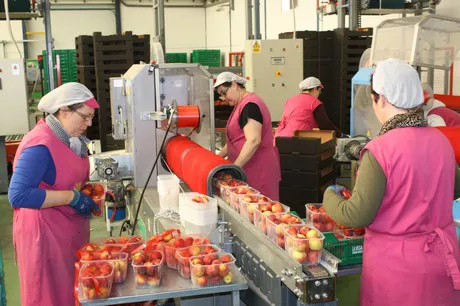While the frosts recorded last week will reduce the volumes of extra-early nectarines and peaches by about 20,000 tonnes in Murcia, one of the main producing areas of Spain, for now, the current forecasts in this area point to a similar production to that of the 2017 campaign.
Murcian plantations have had enough hours of cold temperatures this winter, which will result in good production volumes, similar to those of last year, and an excellent fruit quality.
The damages by frosts in Italy have been confirmed to be very severe, with 100% of the extra-early fruit damaged in Puglia and at least 60% in Campania. This will surely result in an emptier market when Murcia's campaign begins, and therefore, there should be less pressure on prices.

The hard blow that the Spanish stone fruit sector suffered last year in terms of both demand and prices, after another 3 difficult campaigns, has caused the growth in the acreage to stop in its tracks, with growers betting more on varietal reconversion.
"Although many seem to have forgotten, the Russian veto is still one of the main causes of the crisis in this sector," says Joaquín Gómez, president of Apoexpa. Spanish exporters used to ship about 30% of peaches, nectarines and Paraguayo peaches to Russia. "Neither China nor the other markets approached by the EU can absorb these volumes at the moment, since the procedures to open markets are excessively slow, and it takes many years for us to replace a market like the Russian one," he says.
Joaquín Gómez reported that the Spanish sector, in close contact with the Italian, expects important logistical developments to be made to facilitate the export of stone fruit to China by rail.
"This would entail a very important qualitative leap. Although air shipments are an alternative to long boat trips, despite their high cost, the protocol that we signed with the Chinese authorities require cold treatments to be carried out 15 days before the fruit's shipment. If we send shipments by train, we are allowed to do the cold treatment during transport, so the transit time would be similar to that of air freight (taking into account the 15 days of cold treatment), although with infinitely lower costs. This year, however, the sector may also make use of more direct flights to Beijing, Shanghai or Hong Kong."
The representative of Apoexpa also stated that "the sector must stand up and reorganise itself to be able to face the abusive commercial practices of European intermediaries working for large supermarket chains, which result in sales at a loss, doing a lot of damage to this sector. We need to learn from last year's experience."



